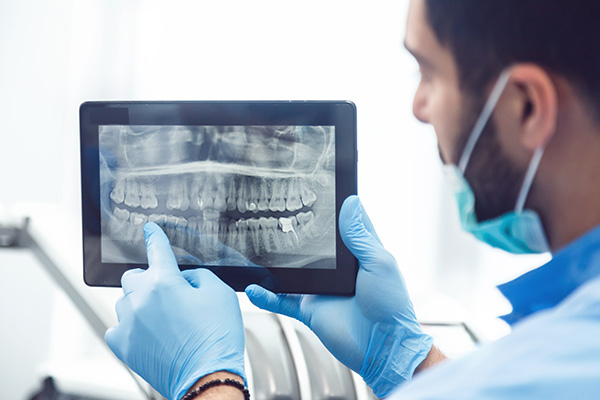 General dentistry allows people to seek dental treatments from someone who knows them well. It is important to give an accurate diagnosis. This is possible with the use of dental X-rays. If you want to know if dental X-rays are advisable in general dentistry, here are the details.
General dentistry allows people to seek dental treatments from someone who knows them well. It is important to give an accurate diagnosis. This is possible with the use of dental X-rays. If you want to know if dental X-rays are advisable in general dentistry, here are the details.
The definition and the need for it
Decades ago, a dental X-ray was a long and laborious process. Advances in general dentistry have brought the digital process of taking dental X-rays. Even so, the patient still will be a little uncomfortable during the X-ray. Despite the awkwardness, dental X-rays provide dentists complete information about the patient’s mouth. These X-rays show the details in the patient’s jaw placement, teeth, and roots. This helps the general dentist catch and treat any problem early.
Solid objects like bones and teeth absorb X-ray energy. These show as light-colored images. The energy passes through thinner objects. These are the cheeks and gums. They tend to appear as dark images. Any problem a general dentistry oral exam cannot detect can show in a dental X-ray.
Looking deeper than what the surface shows
High-energy radiation makes dental X-ray images possible. Low-density tissue in vital organs and skin cannot take in this type of radiation. The energy merely passes through these tissues. The harder materials in the body absorb this type of radiation. These are the teeth and bones. Digital or film sensors can measure the rate and degree of absorption.
The difference between diagnostic and therapeutic dental X-rays
There are different types of dental X-rays. The dental X-ray a patient gets at the clinic depends on the purpose of the appointment. A patient can get either a diagnostic or therapeutic dental X-ray. The dentist will determine which one will help the patient more.
A general dentistry checkup may involve a diagnostic X-ray. The dentist will need it to establish a custom-fit treatment plan for the patient. A root canal procedure will need a periapical diagnostic X-ray. With this, the dentist aims to take a complete image of the patient’s tooth. This involves taking photos from the crown to the root. The images will help the dentist create a comprehensive treatment plan.
Some general dentistry visits need therapeutic X-rays. This is the kind a patient gets during a teeth cleaning or oral examination. This type of dental X-ray gives the dentist a complete view of the patient’s gums and teeth. There could be some areas in need of further checking.
The frequency
A patient does not need a dental X-ray during every appointment. It is standard to get dental X-rays once every two or three years. More frequent dental X-rays are for patients who suffer from oral issues. It depends on what the general dentistry care provider decides.
A general dentistry practice knows when you need a dental X-ray
Dental X-rays may sound intimidating and time-consuming to some people. But with the latest technology, this procedure is now faster and more convenient. A dental X-ray happens in the general dentistry clinic. An appointment with your dentist will determine if and what kind of dental X-ray you must get.
Request an appointment or call TJ Family & Implant Dentistry PLLC at 979-721-9410 for an appointment in our Bryan office.
Related Posts
A general dentistry clinic can provide treatments for a knocked-out tooth. This type of dental injury often happens because of a strong impact on the face. It can be from a fight, a vehicular accident, or a sports injury. If you want to know if a general dentistry clinic can restore your dislodged or knocked-out…
Fluoride is commonly used in general dentistry to reduce the risk of tooth decay and strengthen enamel that is weakened from acidic attacks that can occur when food particles and bacteria combine in the mouth. This article discusses how and when a general dentist might recommend fluoride for patients.Fluoride can be used for preventive purposes…
General dentistry helps you to deal with issues like toothaches. Toothaches are your brain’s way of telling you that there is something wrong with a tooth. It can be caused by things like tooth decay, damage to a tooth’s structures, or infection. A mild toothache that goes away on its own is often not a…
